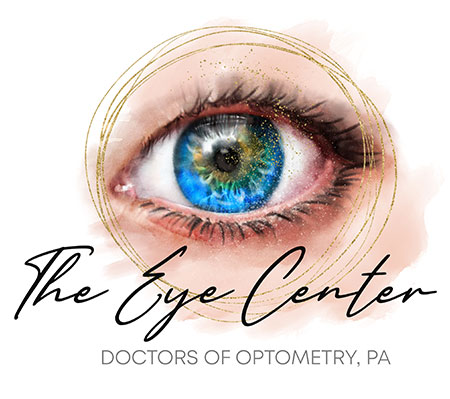All Categories
Featured

While a lot of individuals comprehend the relevance of protecting their skin from the sun, the dangerous effects of ultraviolet (UV) rays on eye health frequently go neglected. Whether you're saturating up the sunlight on a summertime day or strolling outdoors on an over cast mid-day, guarding your eyes from UV rays is necessary.
What Are UV Rays? UV rays are a kind of electro-magnetic radiation given off by the sunlight. They are classified right into 3 kinds:
UVA Rays: These penetrate deep into the skin and eyes and can add to long-term damages. UVB Rays: These rays are a lot more intense than UVA and are largely in charge of surface-level damages to the eyes and skin. UVC Rays: These are one of the most dangerous however are mostly absorbed by the Earth's ozone layer and don't usually reach us. UVA and UVB rays are the main wrongdoers behind eye-related damage.
Short-Term Effects of UV Direct Exposure on the Eyes. Even temporary exposure to extreme UV rays can hurt your eyes. One usual problem caused by this is photokeratitis, or "sunburn of the eye." Signs of photokeratitis consist of:
Uncomfortable, red eyes. Sensitivity to light. Tearing or extreme watering. Momentary vision loss or blurred vision. Photokeratitis is usually short-term, yet it serves as a caution of how destructive UV exposure can be, even in small doses.
Long-Term Impacts of UV Exposure. Extended exposure to UV radiation can bring about a lot more severe and irreversible eye conditions, such as:
Cataracts: UV rays can accelerate the development of cataracts, a condition that causes clouding of the eye's all-natural lens, leading to fuzzy vision and, if neglected, loss of sight.

Macular Degeneration: UV direct exposure can harm the retina, especially the macula, boosting the risk of age-related macular degeneration (AMD), which impacts central vision.
Pterygium: A growth of cells on the white component of the eye that can extend over the cornea, triggering discomfort, soreness, and vision issues.
Pinguecula: UV exposure can trigger yellow-colored down payments to develop on the conjunctiva, leading to irritation and dryness.
Skin Cancer Around the Eyes: The fragile skin surrounding your eyes is extremely vulnerable to UV radiation, boosting the threat of skin cancers cells like basal cell cancer and squamous cell carcinoma.
Just How to Shield Your Eyes from UV Rays. Shielding your eyes from UV rays is basic and requires a couple of mindful routines:
Purchase Top Quality Sunglasses: Choose sunglasses that obstruct 100% of UVA and UVB rays. Try to find labels that specify "UV 400" defense. Wrap-around styles are ideal as they obstruct UV rays from the sides too.
Wear a Wide-Brimmed Hat: A hat with a border at the very least 3 inches large can considerably lower UV direct exposure to your eyes and face.
Restriction Direct Exposure Throughout Peak Hours: UV rays are best between 10 a.m. and 4 p.m. If you must be outdoors throughout these hours, ensure you're appropriately secured.
Don't Be Misleaded by Clouds: UV rays can penetrate with clouds, so it's vital to use sunglasses even on cloudy days.
Secure Your Eyes Year-Round: Snow, sand, and water can mirror UV rays, magnifying their impacts. Eye protection isn't simply for warm summer season days-- ensure you're covered in all seasons.
Use UV-Blocking Contact Lenses: Lots of contact lenses now feature UV defense. If you put on contacts, ask your eye doctor about lenses with built-in UV filters for included protection.
Encourage Eye Protection for Children: Kid's eyes are more delicate to UV rays due to the fact that their lenses are more clear, allowing even more radiation to reach the retina. Make sure they use sunglasses and hats throughout outdoor tasks.
Normal Eye Tests. Regular check-ups with an eye care expert are essential for very early detection of any type of UV-related damage. An optometrist or eye doctor can review your eyes, advise safety procedures, and find conditions like cataracts or macular degeneration beforehand.
Conclusion. By putting on UV-blocking sunglasses, limiting sun direct exposure during top hours, and staying regular with eye tests, you can ensure your eyes stay healthy and your vision continues to be clear for years to come. Safeguarding your eyes from UV radiation isn't simply about convenience-- it's a necessary step in preserving your long-lasting eye health.
Latest Posts
Check Out the Best Auto Repair Coupons in Montclare, Chicago
Secure Your Financial Investment with Specialist Seamless Gutter Setup
How Chicago Drivers Trust Montclare Auto Repair for Trusted Service and Great Savings
More
Latest Posts
Check Out the Best Auto Repair Coupons in Montclare, Chicago
Secure Your Financial Investment with Specialist Seamless Gutter Setup
How Chicago Drivers Trust Montclare Auto Repair for Trusted Service and Great Savings